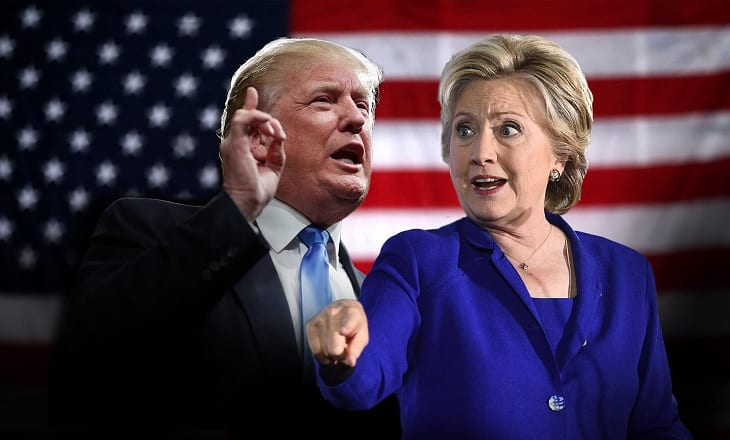Donald Trump was the clear winner of the US election, with both Hillary Clinton and the Democratic Party the clear losers. But there were others who won and lost thanks to the November 8 US election. Adinah Brown, content manager at Leverate, explains.
Trump may have won the Presidency, but the true winners may have very well been the many short term traders who made financial wins in the aftermath of the elections. Immediately after the elections the Dow Jones dropped by nearly 800 points and then shortly afterwards equalized early in the following day to then rise by 250 points. This volatility created fertile grounds for traders wishing to buy and take advantage of a ripe opportunity to enter the market.
Most financial advisors, particularly those who manage the financial portfolios of long term traders, report that their clients did not deviate from their financial plans or strategies in order to take advantage of the volatility in the market. In contrast, numerous discount brokerages did report a significant uptake in the number of orders that they received from their clients wishing to buy and sell. Many of these traders were either looking to shield their portfolio from potential losses or otherwise trying to enter the market, or a specific holding, as it took a dive. Ben Corniack, a retail investor explains the rationale at play here:
Volatility is an opportunity, I called my broker and told him to invest $10,000 if a gold buying opportunity arose, because if the market is volatile then I am better off buying in at the lower price.
Corniack reports that generally his investments are broadly diversified across the market and his financial objective is set for the long term.
My time horizon for investing is more than one presidential cycle, so when I see some volatility in the market, that’s an opportunity for me.
Those to make money from Trump’s election generally included stocks that investors anticipated will benefit from Trump’s Presidency. TD Ameritrade reported a level of trading activity of the Wednesday following the elections three times as high as the Monday beforehand. They reported purchases in healthcare and financial companies. Companies that experienced a flux of investment included CVS Health Corp, Valeant Pharmaceuticals International Inc and Bank of America, just to name a few.
TD Ameritrade’s trader group vice president, Steve Quirk said in an interview with the Wall Street Journal “You have this episodic volatile event during the market down to levels investors think are attractive and they scoop up what they can”. Given the nightmarish volatility that came with the financial crisis, many retail investors have learned the lesson that those “unfortunate enough to exit a position too soon, missed a pretty big opportunity”.
In anticipation of the US elections, Soros Fund Management LLC dissolved its shares in what was to be the world’s biggest gold exchange-traded fund of 2016’s Q3. The report filed with the Securities and Exchange Commission showed that by the end of September, global financier George Soros’s fund eliminated its position in SPDR Gold Trust as bullion prices rose the highest that they’ve been in more than two years. In its place, Soros more than doubled its shares in miner Barrick Gold Corp, from 1.07 million to 2.85 million shares that are worth $50.5 million.
Like Soros, most traders appear to understand that market volatility represent buying opportunities, rather than causes for panic. While most long term traders are inclined to not let volatility affect their trading strategy, short term traders were quite happy to ride on the wave that came through on the back of the US elections, able to find good buying points and positions for entry. For brokerages, this may mean keeping a particularly close watch on clients to make sure that their trading activities are not taking on undue risk. This is a good time for brokerages to touch base with their clients to ensure that they understand what periods of volatility more accurately entail, but also, to help them maximize on their trading purchasers as they keep to the course of their trading plan.
